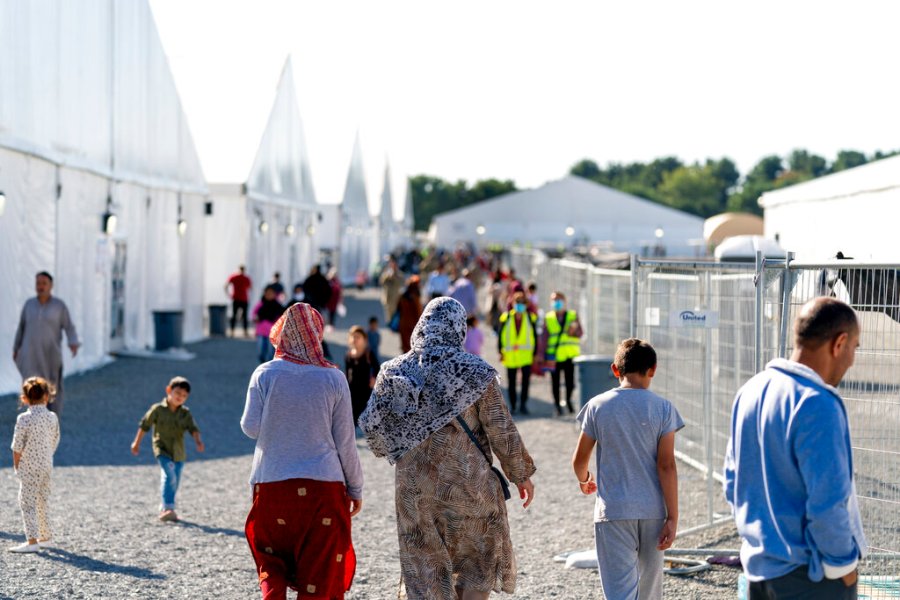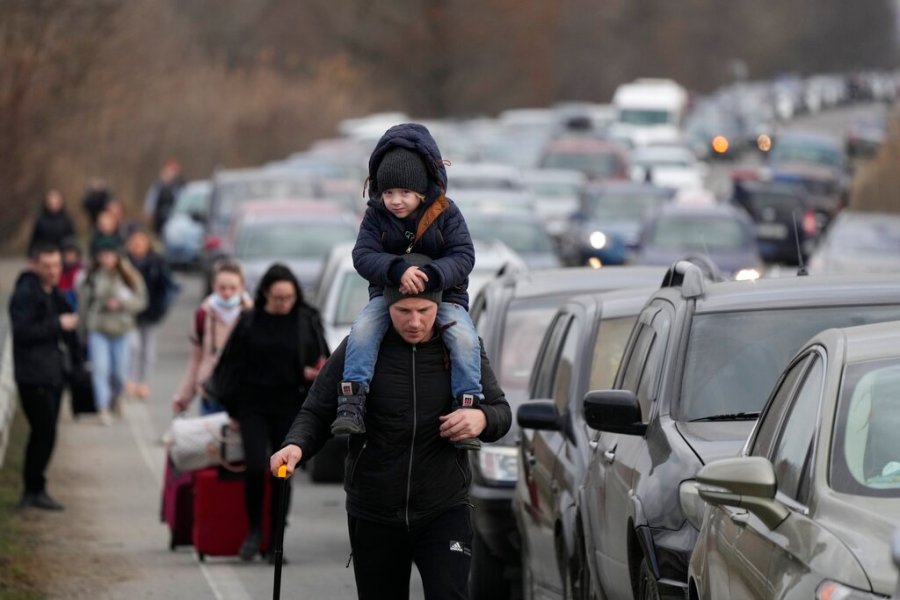(NewsNation Now) — Wars in Syria, Afghanistan and now Ukraine are overwhelming the way the world handles and permanently resettles refugees. But an approach called “community sponsorship,” recently endorsed by the U.S. government, is helping and may actually work better.
Think of it as creating a surrogate community for the refugees.
Instead of governments and nongovernmental organizations completely managing a refugee’s case, neighbors, faith-based groups and coworkers pitch in. They commit to giving refugee families financial, emotional and practical support as they build new lives in a new country.
What’s different about community sponsorship?
Usually, the United States accepts refugees and for about three months helps them find a home, job and schools for their children. After that, refugee families still have access to special services but have to handle it on their own. Many struggle with English or understanding how America works.
With community sponsorship, the government works with a nonprofit organization that has a network of volunteers in the refugee’s community ready to help. The teams can range from five to 20 people who are on call with a refugee family for at least the first six months, though often longer.
These volunteers may help the family with paying rent, filling out paperwork, enrolling children in school, practicing the local language, navigating cultural differences and helping with anything else they might need.
Community sponsorship is working
The United States government only started using community sponsorship in October to support Afghan refugees. But the United Nations and other countries have been at it for years.
Canada, for example, has settled 300,000 refugees this way. Their research showed the sponsorship approach builds stronger bonds in a refugees’ new neighborhood — and the surrounding community becomes more open-minded.
Within five years, 70 percent of sponsored refugees were earning income. Twenty years later, the refugees’ income was above the Canadian average.
These facts around income are important because an overwhelming number of Americans who oppose immigration do so because they think it hurts the economy, according to a recent NewsNation poll.
“When (volunteers) see them, they don’t see refugees or a scary word — they don’t see terrorists,” said Kathie O’Callaghan, the founder of Hearts & Homes for Refugees in New York, which has been doing community sponsorship on its own since 2016. “They see a mother and a father and children and babies trying to make a life. They don’t recognize them as different. Because after all, they are us.”
Why do we need it?
In 2015, more than 1 million people arrived at European borders due to the Syrian crisis — the most on the continent since World War II. The need has not slowed in the years since. About 84 million people have been forcibly displaced worldwide as a result of persecution, conflict or violence and resettlement spots are available for less than 1 percent of them. As a result, there’s a desperate need for programs that can help more people.
More than half a million Ukrainians have fled to neighboring countries following the Russian invasion. It’s likely some of them will end up in the United States at some point and possibly be eligible for community sponsorship. But that process of vetting, paperwork and interviews often takes years.
How do you get involved?
Multiple nonprofit organizations in the United States have been using a community sponsorship approach on their own to help refugees. They are always looking for volunteers and you can search for opportunities by ZIP code in the Refugee Council USA’s database. Or, you can volunteer for the U.S.’s Sponsor Circles to help resettle Afghan refugees.
Having a federal policy is important, though, because it makes community sponsorship easier to implement and consistent. The U.S. resettles more refugees than any other country. Nonprofit organizations pick up a lot of that slack.


